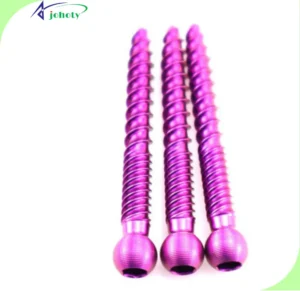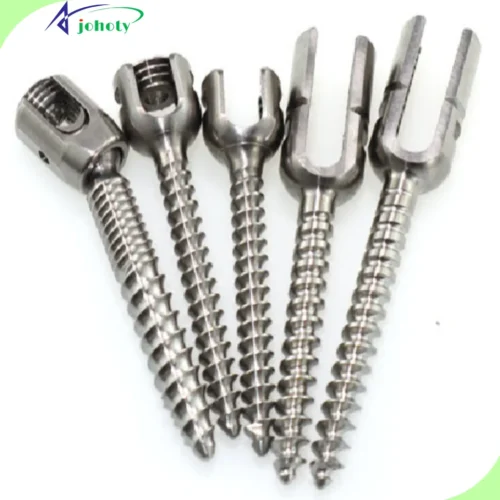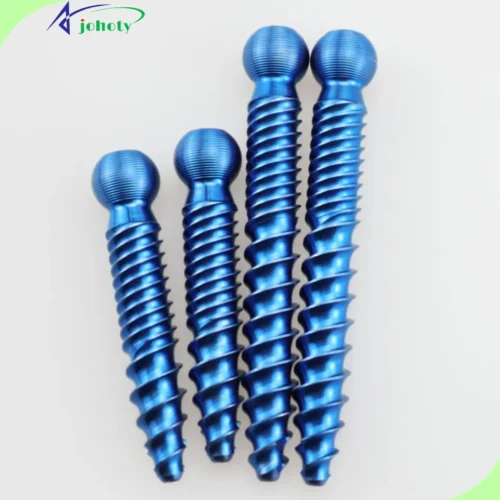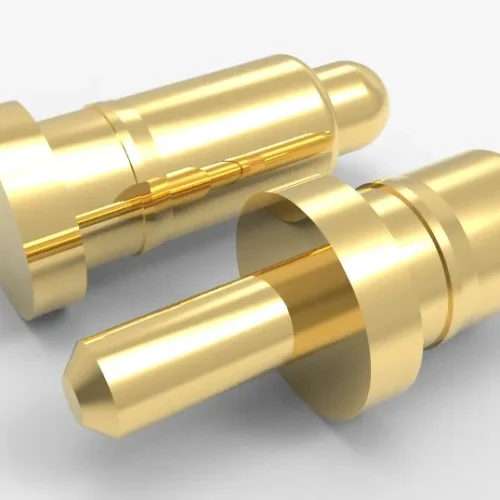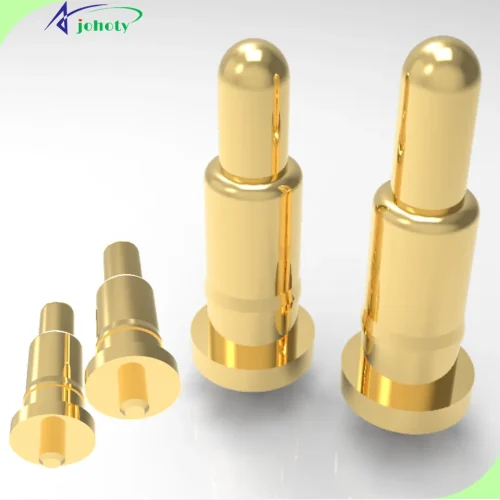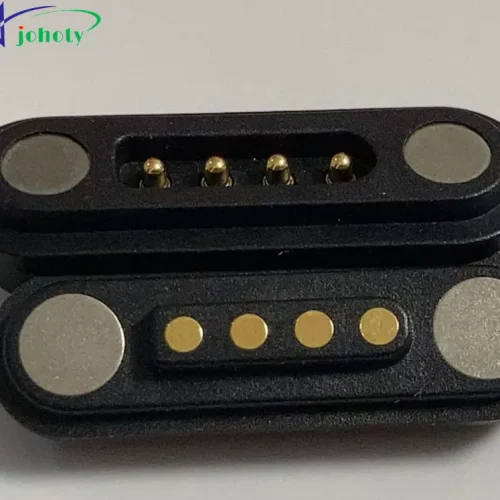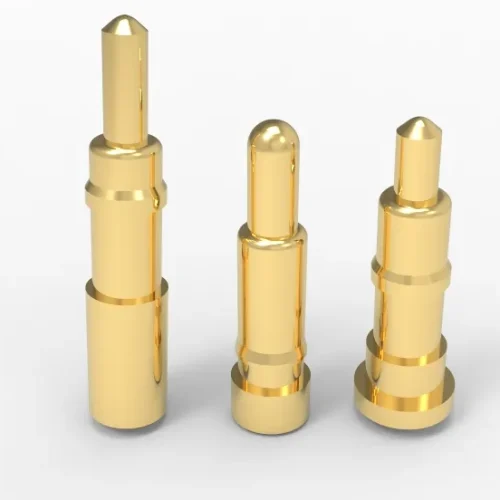Why My Dental Implant Screw Fell Out. Gain professional analysis and preventive strategies for understanding dental implant screw loosening. Ensuring long-term treatment success. Dive into this article to grasp key technical insights and operational guidance.
Why My Dental Implant Screw Fell Out, unexpected loosening of dental implant screws can inconvenience patients and affect treatment outcomes. This article delves into common causes of screw loosening, providing practical solutions and effective prevention strategies. This is to help dental professionals optimize treatment processes and enhance patient satisfaction.
Introduction about Why My Dental Implant Screw Fell Out
In dental implant surgery, the stability of implanted screws is crucial for success. However, incidents of screw loosening occasionally occur, causing discomfort and inconvenience to patients. And potentially impacting the reputation and operational efficiency of dental clinics. Screw loosening can be caused by various factors, including surgical techniques, material selection, and individual patient differences.
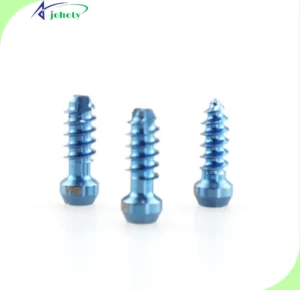
This article thoroughly analyzes the various reasons for dental implant screw loosening. And it provides a series of practical solutions and preventive measures. We also share some case studies to help you understand how to effectively avoid such issues in practice. Thereby optimizing your treatment plans, enhancing patient satisfaction, and boosting treatment efficacy. This article is a valuable resource that every dental professional should not overlook. Whether you’re an experienced dental professional or a newcomer to the industry. You can gain the necessary knowledge and skills to prevent such occurrences.
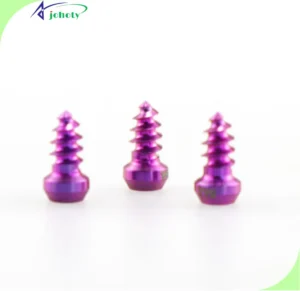
Root Causes About Why My Dental Implant Screw Fell Out
Surgical Technique Factors:
- Improper torque control: Incorrect torque during implantation, either too high or too low, may lead to screw loosening. Excessive torque can cause screw head fracture or excessive compression, damaging surrounding bone tissue. Insufficient torque may result in inadequate screw grip, leading to decreased implant stability.
- Improper implant depth: If implant screws are not inserted to the appropriate depth, they may not fully utilize the support of the bone structure. Resulting in insufficient stability.
- Angle error: The angle of implant screws should precisely match the optimal contact surface between the implant and bone structure. Any deviation may lead to uneven stress distribution, increasing the risk of loosening.
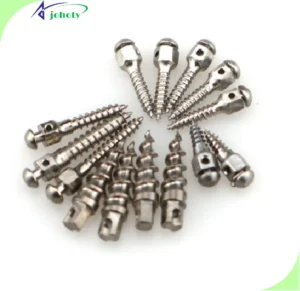
Material Selection:
- Screw material: The biocompatibility, mechanical strength, and corrosion resistance of materials directly affect the long-term performance of screws. Poor-quality materials may result in corrosion, fatigue, or fracture under load.
- Design flaws: The design of implant screws should consider load distribution and stress points. Inappropriate design may lead to unnecessary stress concentration during use, causing loosening.
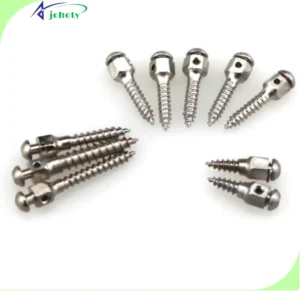
Patient-Related Factors:
- Bone issues: Patients with osteoporosis or insufficient bone density may have weaker bone tissue support for implants, potentially resulting in improper integration.
- Lifestyle habits: Tobacco use, diabetes, or other conditions that may affect bone metabolism and healing. They can directly affect implant stability and long-term success rates.
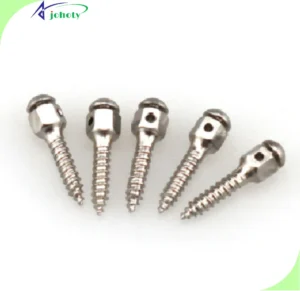
Maintenance and Management:
- Inadequate postoperative care: Poor oral hygiene habits, irregular check-ups, and inadequate implant maintenance by patients are also important factors leading to screw loosening. Accumulated plaque and calculus can lead to inflammation, affecting implant stability.
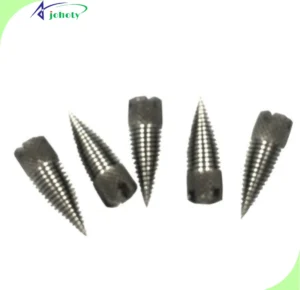
Infection:
- Postoperative infection: Infections during or after surgery may can result in inflammation around the implant site. Which may hinder integration with bone tissue, leading to screw loosening.
Solutions After Dental Implant Screw Fell Out
1. Immediately re-fix or replace screws:
- Once screw loosening or detachment is detected, promptly recall the patient for treatment. Inspect for any damage to the screw, replace if necessary with a new one, and ensure correct torque for re-fixation.
2. Use high-quality implant materials:
- Select Johoty’s high-grade titanium alloy implant screws, which typically offer higher reliability and durability. Utilizing high-quality dental implant screws can reduce loosening issues caused by material defects.
3. Optimize implantation technique:
- Ensure every step of the implantation procedure is up-to-date with the latest standards through ongoing effective training and education. Particularly focusing on implant angle and depth, crucial factors affecting implant stability.
4. Precise torque control:
- Employ torque wrenches during implant screw installation. Strictly adhering to our recommended torque settings to avoid over-tightening or loosening.
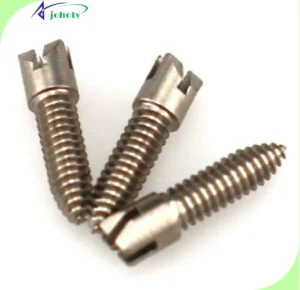
5. Regular implant inspections:
- Schedule regular implant maintenance and check-ups, utilizing X-rays or other imaging techniques to monitor the status of implants and screws. This aids in early problem detection and intervention.
6. Comprehensive patient assessment:
- Conduct thorough oral and systemic health evaluations of patients before surgery to determine suitability for implant procedures. Special measures may be required for patients with osteoporosis or other conditions affecting bone healing.
7. Improve patient oral hygiene habits:
- Guide patients regarding appropriate oral hygiene habits, and undergo regular professional teeth cleanings to reduce infection risks. And maintain a healthy environment around implants.
8. Interdisciplinary collaboration:
- Collaborate closely with oral surgeons, prosthodontists, and periodontal specialists when dealing with complex implant issues. Leveraging each other’s expertise to develop optimal treatment plans.
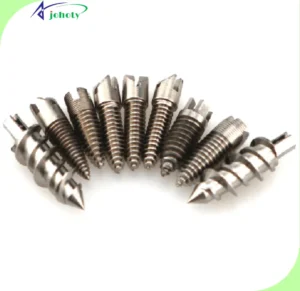
Preventive Measures Before Dental Implant Screw Fell Out
Precise Surgical Planning and Execution:
- Thorough preoperative planning: Utilize high-precision imaging techniques, such as CBCT (cone beam CT) to assess the patient’s bone condition and anatomy. Enabling the formulation of a rational implantation plan.
- Accurate implantation technique: Ensure precise control of angle, depth, and position during implantation. It is to avoid screw overstress or improper loading due to technical errors.
Correct Torque Application:
- Use of torque wrenches: Employ torque wrenches with preset torque values for screw fixation to prevent overtightening or loosening. Ensuring consistency and reliability with each operation. Regular tool calibration: Periodically calibrate and maintain torque wrenches to ensure their accuracy and functionality. Preventing operational errors due to tool malfunctions.
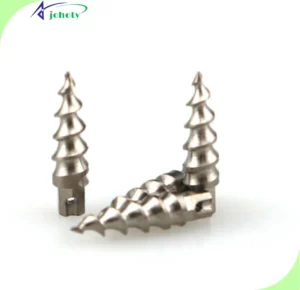
Comprehensive Patient Assessment and Management:
- Comprehensive medical evaluation: Thoroughly assess the patient’s overall health status and oral hygiene. Particularly for patients with underlying issues such as diabetes or osteoporosis, and devise personalized treatment plans.
- Patient education: Educate patients on the importance of implant care, emphasizing good oral hygiene habits and the necessity of regular follow-ups.
Selection of Appropriate Implant Materials:
- High-quality implant systems: Choose reputable high-quality implant systems available in the market, prioritizing products that have been clinically validated to ensure mechanical performance and biocompatibility.
- Design optimization: Consider using implant systems with self-locking or anti-loosening designs, which can reduce the probability of screw loosening.
Regular Clinical Monitoring:
- Periodic checks: Establish regular implant inspection plans to promptly detect and address any abnormalities in implants and their components.
- Long-term tracking: Utilize digital tools to record and analyze the long-term performance of implants, continuously monitoring the stability of implant screws.
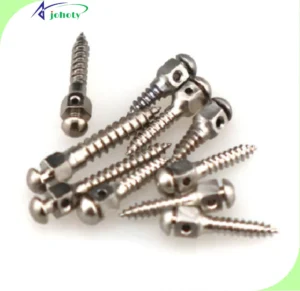
Success Use Cases about Why My Dental Implant Screw Fell Out
High-Precision Implantation Technique
Background:
- A 50-year-old male patient, who lost his anterior teeth due to a car accident, opted for dental implant surgery. Within six months post-surgery, the implant screws experienced loosening.
Solution:
- Thorough Diagnosis: Conducted detailed oral scans using CBCT to analyze the cause of screw loosening, revealing incorrect implantation angles.
- Accurate Re-implantation: Adjusted the implant angle, re-implanted new screws, and used precise torque control to ensure correct fixation.
- Follow-up Monitoring: Regular tracking checks to ensure implant stability and provide oral hygiene education to the patient.
Result:
- With readjustment and precise implantation, the patient’s implant achieved successful stability, with no further loosening occurring within two years. Resulting in high patient satisfaction.
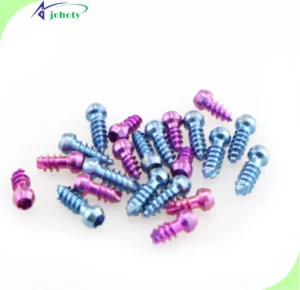
Integrated Preventive Measures
Background:
- A 45-year-old female patient noticed signs of implant mobility shortly after undergoing dental implant surgery. Initial examination revealed slight screw loosening.
Solution:
- Immediate Action: Urgently recalled the patient, re-tightened the loose screws, and adjusted the load to reduce pressure on the implant.
- Improvement of Lifestyle Habits: Provided detailed guidance to the patient to improve oral hygiene habits, especially in the implant area.
- Regular Check-ups: Established an intensive follow-up plan, with professional implant checks and cleaning every three months.
Result:
- Through these comprehensive measures, screw loosening did not recur. Maintaining the patient’s implants in good condition and enhancing confidence in the treatment process.
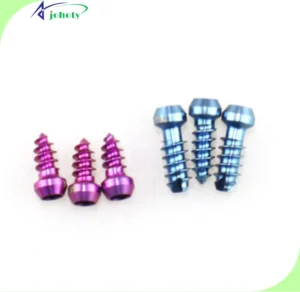
Utilization of High-Quality Implant Systems
Background:
- A dental clinic faced multiple cases of implant screw loosening, impacting the clinic’s reputation.
Solution:
- Material Upgrade: The clinic decided to switch to using a higher standard of implant systems, adopting the new generation of self-locking screw technology.
- Technical Training: Provided technical training on the new system to all dental practitioners in the clinic to ensure precise mastery of implantation techniques.
- Patient Education and Communication: Strengthened communication with patients, explaining the advantages of the new system to rebuild patient trust.
Result:
- After switching to high-quality implant systems, the problem of screw loosening was reduced significantly. Leading to the restoration of patient satisfaction and the clinic’s reputation.
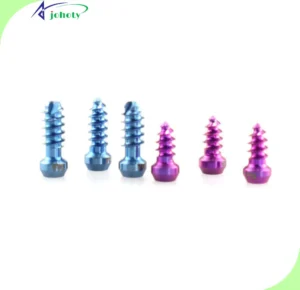
Unsucsess Use Cases about Why My Dental Implant Screw Fell Out
Neglecting Torque Settings
Background:
- An experienced dentist, in a rush to complete a dental implant surgery, failed to strictly adhere to our recommended torque settings.
Issue:
- Within weeks post-surgery, patients returned to the clinic complaining of pain in the implant area, further examination revealed screw breakage.
Analysis:
- Over-tightening the screws led to excessive stress, ultimately causing screw breakage. Without using a torque wrench, the dentist couldn’t accurately control the applied force.
Lesson:
- Always use a torque wrench and strictly follow the implant manufacturer’s guidelines to avoid applying too much or too little force.
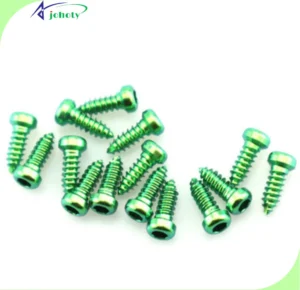
Inadequate Preoperative Assessment
Background:
- A dentist installed dental implants for a patient with osteoporosis without conducting sufficient bone assessment.
Issue:
- Shortly after surgery, the patient’s implant screws loosened, leading to implant failure.
Analysis:
- The patient’s low bone density due to osteoporosis failed to provide adequate support for fixation. It is a critical factor overlooked in the preoperative assessment.
Lesson:
- Comprehensively assess the patient’s bone condition before dental implant surgery and adjust the treatment plan accordingly.
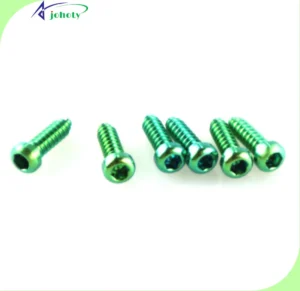
Neglecting Patient Oral Hygiene Guidance
Background:
- In a large dental clinic, patients underwent implant surgery without adequate postoperative oral hygiene guidance.
Issue:
- Several patients experienced infections around the implants due to improper oral hygiene habits, resulting in some implant screws loosening.
Analysis:
- Infections around the implants exacerbated screw loosening and inadequate patient education in the clinic. This led to patients not taking appropriate oral hygiene measures.
Lesson:
- Postoperative patient education is equally important. Instruct patients in correct implant care methods, and schedule regular professional cleanings to maintain implant health and stability.
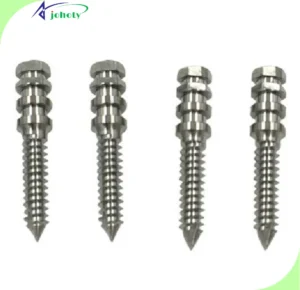
Conclusion: Key Strategies for Improving Dental Implant Stability
In dental implant treatment, screw loosening is a concerning issue. It not only affects the functionality of the implant but also potentially impacts the patient’s quality of life and trusts in the clinic. Through the detailed discussion in this article, we acquire an understanding of the myriad elements leading to screw loosening. And learn how to effectively address and prevent this issue through practical case studies.
Important preventive and corrective measures include:
- Precise surgical execution: Employing appropriate implant techniques and correct torque application are crucial steps in preventing screw loosening.
- Selection of high-quality materials: Using high-standard, clinically validated implant systems can significantly reduce the risk of screw loosening.
- Comprehensive patient assessment: Conducting comprehensive oral and systemic health assessments for patients and developing personalized treatment plans based on individual conditions.
- Regular monitoring and maintenance: Regular professional examinations of implants to promptly detect and address potential issues are key to maintaining long-term stability.
- Patient education: Strengthening patient awareness of the importance of implant care and guiding them in proper oral hygiene maintenance.
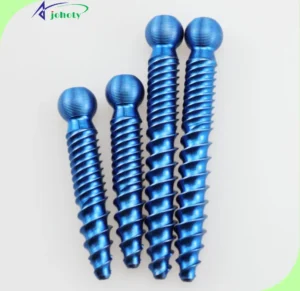
Our suggestions:
- We encourage dental professionals to focus on the technical and material aspects and emphasize communication and education with patients. To ensure the success of implant treatment and minimize the occurrence of screw loosening. Each failed case provides valuable lessons, while successful cases offer replicable models.
- In conclusion, dental implant screw loosening is a multifactorial problem requiring consideration of various factors. Such as surgical technique, patient conditions, material selection, and long-term maintenance.
- By executing these strategies, we can greatly elevate the treatment’s success rate, and enhance patient satisfaction. And ultimately improve the overall reputation and business outcomes of the clinic.
